#convenient timing when all the Western media wants to talk about is Iran
Explore tagged Tumblr posts
Text
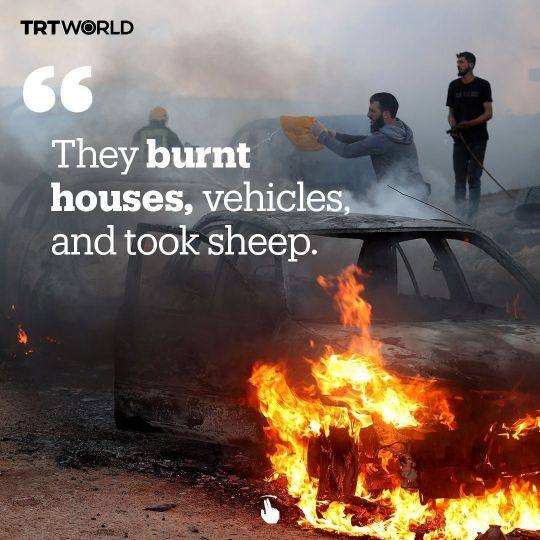
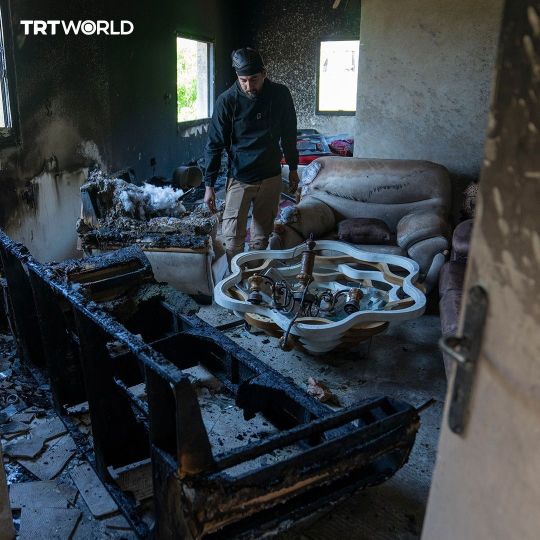
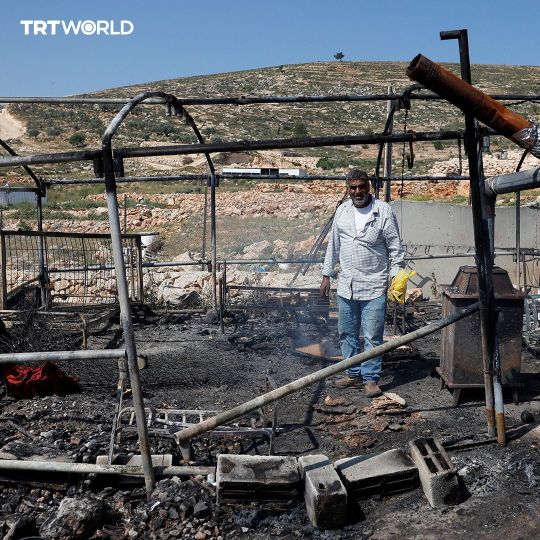

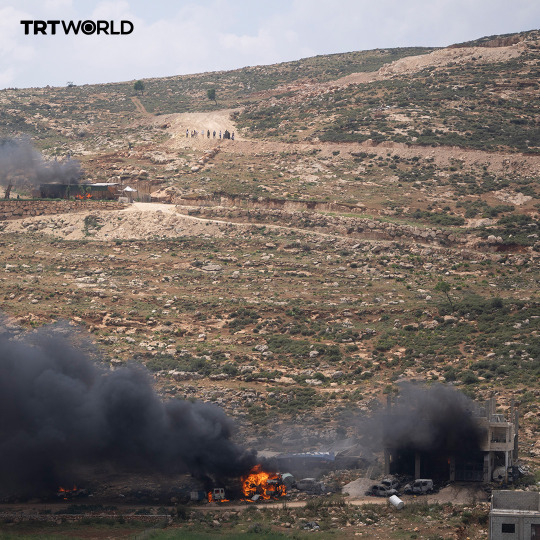

#al mughayyer#ramallah#illegal occupation#israel is an illegal occupier#illegal settlements#illegal settlers#settlers attack#settler violence#settler colonialism#apartheid#save palestine#ethnic cleansing#israel is an apartheid state#seek truth#free palestine 🇵🇸#genocide#israel is committing genocide#israeli war crimes#convenient timing when all the Western media wants to talk about is Iran#misdirection#israel is a terrorist state#propaganda kills#israel lies while palestine dies#terrorism#how is this not apartheid?#spread awareness#repost#please share#west bank#this was NEVER about Hamas!
2 notes
·
View notes
Text
For many years, one thing that has always kept many travelers from coming to Iran has been safety concerns. Many people — mostly Westerners — have always thought of Iran as one of the most dangerous places on earth. But why everyone seems to be worried about traveling to Iran? Is the situation in the country really that bad? In this article, I will try to explain what Iran really looks like and why the media has been trying to fool everyone for many years.
The Islamic revolution of 1979 marked a major shift in Iran’s tourism industry. For many years, Iran was considered (and advertised) as an unwelcoming destination for travelers. As a program to attract more tourists to the country, citizens of more than 70 countries can now get a Visa on Arrival (VOA) in a number of ports of entry. The word is spreading every day on the internet and social media and people are sharing their experiences in Iran, most of which are overwhelmingly positive.
Travel Risk Map 2019
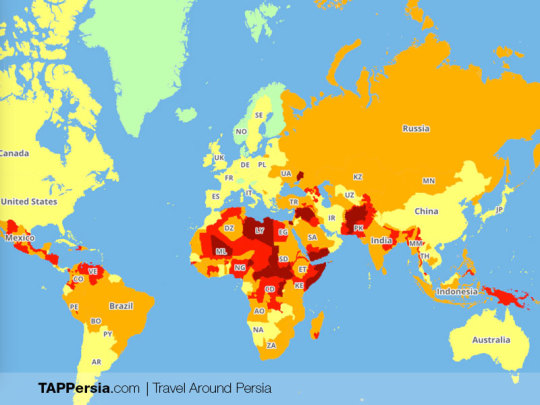
According to the 2019 Travel Risk Map, launched by global risk experts International SOS in collaboration with Control Risks, Iran is listed in the “Low Risk” category. The majority of European countries are also falling in this category. According to their website, this report uses a number of factors like political violence (including terrorism, insurgency, politically motivated unrest and war), social unrest (including sectarian, communal and ethnic violence) as well as violent and petty crime to determine the risk of traveling to every country in the world. Other factors, such as the robustness of the transport infrastructure, the state of industrial relations, the effectiveness of the security and emergency services and the country’s susceptibility to natural disasters are also considered. You can check their website for more details on what every risk category is defined.
People, People, People
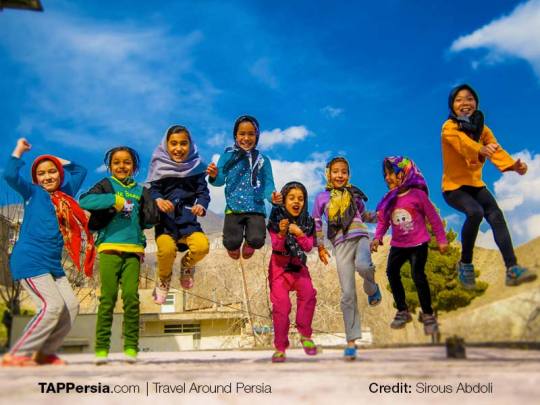
Iran is definitely one of the most misunderstood countries in the world. For the same reason, many travelers are surprised to see how the country and its people are completely different from their expectations. Many frequent travelers find Iran safer than most other destinations. Almost every solo female traveler I have talked to has confirmed that they feel more comfortable walking alone at night in the cities of Iran compared to some European countries.
When you first visit Iran, one of the first things you might notice is the amount of attention locals give to you as a tourist. Most Iranians tend to show a lot of respect towards foreigners. It is very common to be invited for a cup of tea or even for a dinner at their home. In fact, making friends in Iran is definitely what will make your experience unique.
The Money Problem
International credit and debit cards do not work in Iran, which means you need to have cash with you at all times. Needless to say, this might create some inconvenience knowing you have to carry all your money with you in cash. Therefore, Iran Tourist Card is a convenient solution for your financial needs in Iran.
Female Travelers
The Middle East is known for being a man-dominated region. In Iran, however, things are a bit different. Women’s presence in the society, especially in bigger cities, is much more noticeable compared to the other middle eastern countries. We have a comprehensive article regarding the safety of Iran for solo female travelers. In general, Iran is considered a safe destination for female travelers. Iranian police are very strict about any sort of misbehavior.
The Scariest Thing About Iran

you’ve heard about it before: we Iranians are not good drivers (and we don’t seem to be sorry about it!). A simple rule to keep in mind is that cars are the rulers of the roads. Do not expect drivers to stop the car or slow down for you to cross the street, even on a crosswalk. If it seems to be a challenge for you to cross the streets, always wait for another pedestrian to cross and follow them. Also, if you do decide to cross the street by yourself, make sure that the driver has acknowledged your presence.
If we take another look at the Travel Risk Map for road safety, we can see that Iran is unfortunately displayed as a “Very High Risk” destination when it comes to road safety. The major roads can be generally categorized as safe and well-maintained, but it is usually the careless drivers and the quality of most cars which make the roads unsafe. The good news is that bus drivers face a lot more strict rules and are usually more careful with their driving.
If a taxi driver is going too fast, try to ask them to slow down, this will hopefully work in most cases. To ask them, you can politely say: “Yavāshtar, lotfan!” which means “Slow down, please!”.
Traveling to “Prohibited” Regions

safety of traveling to the Western regions like Kurdistan or Sistan va Baluchistan region in the East has been always questioned by travelers wanting to visit more non-touristy areas of the country. While some countries ask their passport holders not to travel to parts of these regions, there are still adventurers who choose to explore their beauty. Visiting these areas is an extraordinary experience.
In Western regions, you meet Kurds and Lurs who are famous for their hospitality and fascinating culture which for a good reason, they’re all proud of it. As a matter of fact, many tourists choose to travel to the Western regions like Kurdistan, though it is advised by some sources not to travel within the 50 kilometers range of the Iran-Iraq border.
For a long time, Sistan va Baluchistan region has not been a popular destination among Iranians and foreigners. Although, this is changing quickly as some cities like Chabahar have attracted many Iranian tourists in recent years. Speaking of Chabahar, this part of the region is generally considered as safe as other parts of the country as the government has been investing in creating a tax-free trade zone. However, if you’re planning to travel to the little-known parts of the region, I recommend traveling with a local guide. Being close to Pakistan and Afghanistan borders and the police struggle with smugglers has kept many travelers from visiting the region. As a result, many stunning parts of the region are yet to be discovered.
Terrorist Threats in Iran
This might be obvious to anyone who has a little understanding of Iran, but for those who don’t: any concern regarding being targeted in a terrorist attack in Iran is complete nonsense. I have seen some resources listing Iran as a high-risk country in terms of terrorist attacks, and this is a big lie.
Conclusion
Generally speaking, violent crimes against tourists are almost unheard of in Iran. But like any other destination, you should always keep an eye on your belongings, mostly in crowded places like bazaars or metro stations where pickpocketing can be a problem.
1 note
·
View note
Note
I'm technically new to all this political stuff, so I hope you can help me out! - How would you briefly explain to someone why capitalism is bad? Why is the US also bad, and how would you respond to someone who claims that it is a "free country" and that we "at least have the freedom of speech and the freedom to protest", etc. I'm very bad with words, I'm just a dumb kid. Sorry for bothering, and thank you. (:
I will answer these questions, but first off, I would say - read, listen, think. Ultimately it’s better if you can develop your own conclusions through a mutual dialogue and learning process with others rather than getting your talking points entirely from others, especially on a social media platform. But if you want resources or recommendations from others, Tumblr can be useful, and I’m happy to provide if you want.
As for answering your questions, it really depends: who is the person you’re talking to, and what do you want out of the conversation? Not everybody has the same interests or concerns or values, and sometimes they’re intractable for whatever reason. So there are other factors that should be taken into account. If you’re just trying to “win” a discussion, I don’t personally think that’s a worthwhile use of time - but if you are trying to convince someone interpersonally or just get better at clarifying your own perspective for the future, that could be valuable.
So, answering your questions under the cut:
How would you briefly explain to someone why capitalism is bad?
A) Capitalism stifles human freedom, and does so in both passive and active forms. This seems counterintuitive because capitalism is peddled as the fulfillment of human freedom (by way of innovation and freedom of choice - Friedrich Hayek and Milton Friedman have claimed that so-called “economic freedom” is a necessary condition for political freedoms), so bear with me.
Passive forms: In order to live under capitalism, most people have to work - and for that matter, they have to tailor skills and interests to be rewarded on the labor-market. Furthermore, since capitalism is predicated on the principle of private property, some kind of state is necessary to enforce that principle through the law, and the state and law are blatantly forms of social control (see David Harvey’s A Brief History of Neoliberalism for more info on this). As a Christian myself, this is the essence of idolatry. The capitalist world-system was made by humans, ostensibly to serve human needs, but is both bad at serving those needs in many ways (for reasons to be explained below) and uses us as the fodder for its self-perpetuation!
And this generates alienation. There is nothing necessarily “wrong” with depending on other people - humans are social creatures and are themselves influenced by the conditions under which they live no matter what those conditions are. But when your labor and the product of your labor benefits others far better than it sustains you, when you are pushed to view all other people as competitors, when you are subjected to various forms of interpersonal and structural domination (detailed below), this produces quite a bit of psychological distress. (Mark Fisher’s Capitalist Realism and Deleuze & Guattari’s Capitalism and Schizophrenia touch on these in different ways.)
Active forms: Historically, in order to get people to be wage laborers, they had to be forced to do so - in England, which is generally regarded as the birthplace of capitalist modernity, laws were established to oblige people to work for a certain period and punish them if they didn’t. Similar legislation cropped up in Germany and France. And, of course, there was also the trans-Atlantic slave trade, the abuse and exploitation of indigenous populations throughout the Americas and the Caribbean, the confinement of women to the household for free labor. Though not all contemporary evils are the result of capitalism, they have all been shaped by capitalism. Primordial prejudices and mistreatment of “aliens” has been around for a long time, but anti-black racism and “scientific” racism developed out of the economic functions of slavery and capitalist development; though patriarchy predates capitalism considerably, it has been absorbed and reproduced by capitalism’s dynamics.
One of the common selling points for capitalism is the voluntary character of the contracts, but again, I don’t think it’s a meaningful choice when your other options are “starve” and “beg.” But let’s grant that people enter into voluntary employment contracts to sustain themselves. Within those contracts, bosses behave like dictators, and this is a pattern of both small businesses and large corporations precisely because they want to get as much work and value out of you as they can in order to make a profit. (Vivek Chibber’s book Postcolonial Theory and the Specter of Capital, while not about interpersonal domination by capitalists and employers, has a great chapter on the subject - “Capital’s Universalizing Tendency.”)
Now, although the standard of living and wages for American workers has been rising for a long time (only recently stagnating despite the growth in productivity, again the result of the neoliberal turn in the 70s and 80s), we have seen the most brutal forms of exploitation and domination displaced to other places - Southeast Asia, China, India, and Latin America being the most prominent cases. And still, as the article linked above demonstrates, there are lots of forms of interpersonal domination still going on in an American context.
B) Capitalism is anti-democratic. The concentration of wealth into a select few hands, and the associated political and social power that has become attached to greater social wealth, means that wealthier people have greater access to political power and influence. The Koch Brothers are probably the best example of this, though lobbying in general is an expression of this function. I’m not going to spend a lot of time on this one because I think it’s the least compelling argument personally even though I agree with it, but it is a popular and common one!
C) Capitalism is also fundamentally irrational. I think this is true in the way that we think about value and the way capitalism generates regular crises, but I’ll just use one example.
The convenient thing about money, as both Locke and Marx point out, is that it is potentially infinite unlike other resources. There is the possibility of limitless growth, of maximum expansion - which is why the capitalist mode of production began in Western Europe and the United States and has since spread around the world. (There is, of course, no such thing as limitless growth for anything, except perhaps cancer.) But capitalism takes this possibility as gospel and as a result, will do anything to maximize growth.
Sometimes those things are good for working people (farm subsidies enabling cheap food - though without those subsidies there would probably be a famine from capitalists not investing capital in food production). More often they aren’t, whether that’s mistreatment of workers, lowering or stagnating wages, destruction of the environment, or outright warfare. Plus, because there is a limit to natural desires or even luxury desires, capitalists have to constantly concoct new desires for us to latch onto, which is why so much money is sunk into advertising.And this is not merely the result of the ethical whims or personal behaviors of individual capitalists (though those do factor in), but the necessary and logical result of a mode of production that has an internal logic of constant, endless reproduction.
Why is the US also bad? how would you respond to someone who claims that it is a “free country” and that we “at least have the freedom of speech and the freedom to protest”, etc.
This is, paradoxically, an easier argument to make empirically but a harder case to sell because American nationalism and American exceptionalism are pretty ubiquitous, and they’ve only gotten more intractable in the past four or five decades. It really depends on what you mean by “bad,” anyway. On one level, the United States is not that different from any other state historically (since they are usually founded through violence and domination) or contemporarily (since they all act in their own geopolitical interests, and that often means fucking other people over undeservedly).
But, on another level: The United States- were built on indigenous and later African slavery- regularly violated treaties or used duplicitous means to gain access to Native American land for investment and expansion purposes- deployed genocidal tactics and sexual violence against Native Americans throughout the expansion process (especially in California and the Southeast)- fabricated a reason to wage war on Mexico to seize territory from it- botched Reconstruction after the end of formal slavery while still allowing black Americans to be abused and exploited and criminalized en masse- had racial policies that the Nazis found inspirational- engaged in imperialist warfare in the Caribbean at the turn of the century- overthrew the Kingdom of Hawaii for economic reasons- nuked a Japanese civilian target (TWICE) when their surrender was already in the cards- used its new hegemony to start launching coups against (mostly democratically elected and socialist-leaning) governments (Iran, Guatemala, Chile)- held the rest of the world in a hostage situation alongside the Soviet Union by threatening nuclear annihilation- waged war on Vietnam after violating the agreement to allow democratic elections and unification to take place- illegally bombed Cambodia and enabled the Khmer Rouge to gain traction- financed Islamist fighters against the Soviet Union that were the precursors of al-Qaeda- engaged in Iran-Contra, basically the shadiest thing in existence, and failed to deliver any real consequences to the people involved - supported and continues to support dictators (Batista, Saddam Hussein, etc.) as well as death squads (right-wing paramilitaries in Latin America)- has the highest incarceration rate in the world- has massively expanded the surveillance and police apparatuses since 9/11- invaded Iraq under false pretenses and let Islamic State develop out of the chaos
This is just a minor selection. And to top it all off, the Constitution of the United States is designed to make government as dysfunctional and anti-democratic as possible. The powers of the President have been perpetually expanding for a long time, and the Supreme Court is such a shamelessly broken, unaccountable institution that I cannot believe we take it seriously. The Supreme Court’s rulings on free speech have been up-and-down, often determined by war and nationalism, and the social backlash and hostility to political protest every time the United States goes to war suggests that even with the freedom of assembly granted by the Constitution, nationalism takes priority over freedoms.
This post is long enough, but if you (or anyone else) want me to elaborate on anything I’ve said here, feel free to ask.
30 notes
·
View notes